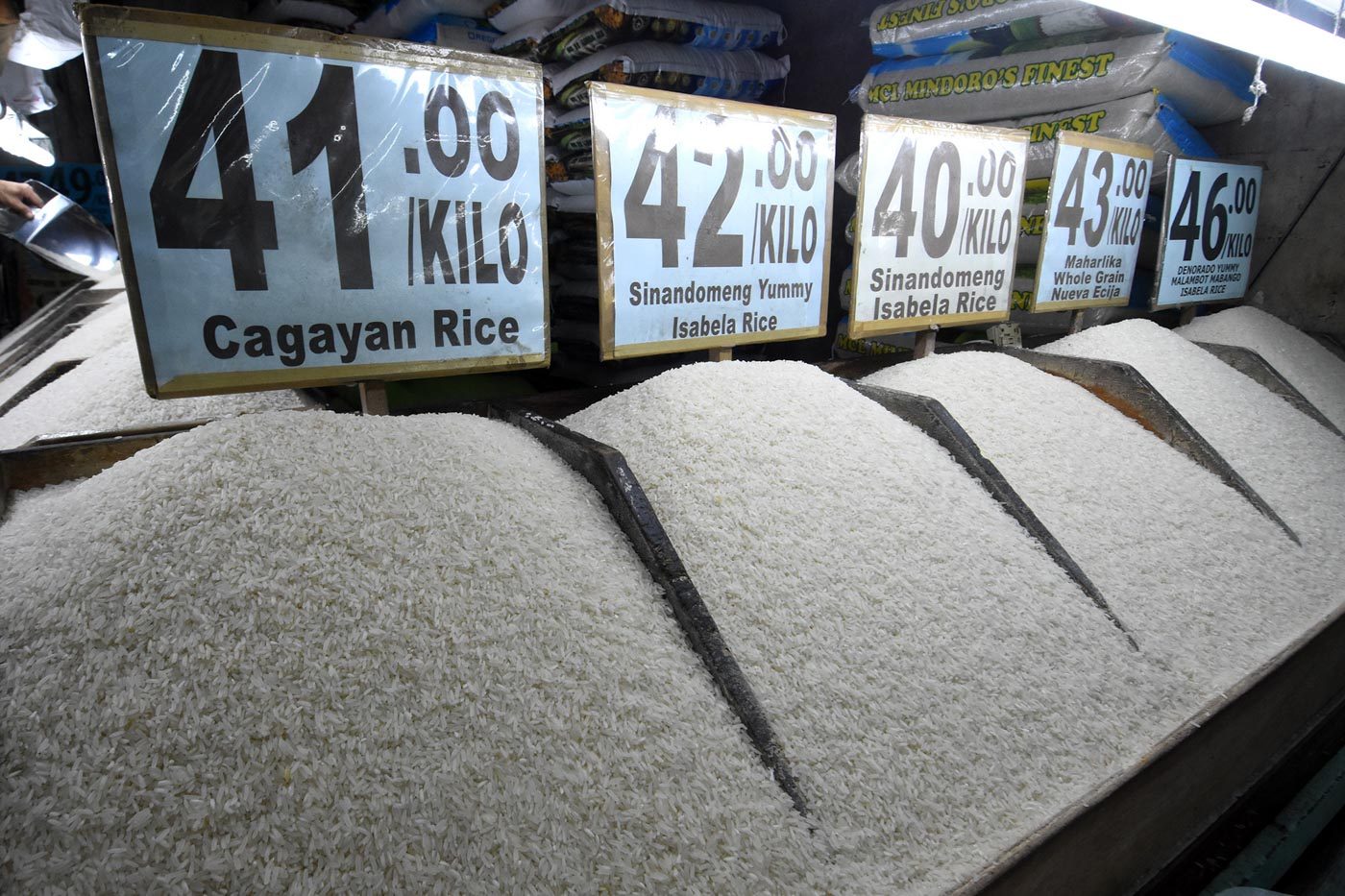SUMMARY
This is AI generated summarization, which may have errors. For context, always refer to the full article.

MANILA, Philippines – The House of Representatives approved on 3rd and final reading the bill seeking to replace quantitative restrictions on rice imports with the imposition of tariffs or taxes.
Lawmakers gave the green light to House Bill No. 7735 or the Revised Agricultural Tariffication Act with a vote of 200-7-2 on Tuesday, August 14.
The measure’s final approval at the House came exactly a week after its 2nd reading on August 7.
Rice tariffication is one of the means identified by Speaker Gloria Macapagal Arroyo and President Rodrigo Duterte’s economic managers that would help address soaring inflation, which hit 5.7% in July. (READ: Rice imports fail to tame inflation in July 2018)
Under HB 7735, the National Food Authority (NFA) would have the sole authority to undertake direct rice importation to ensure food security and maintain national buffer stocks. The NFA would also have the power to allocate import permits and issue guidelines for rice and corn importation.
The same bill would set the bound rate for rice to the following:
- 40% most favored nation (MFN) rate for importation within the metric ton maximum access volume from non-members of the Association of Southeast Asian Nations (ASEAN) and the World Trade Organization
- 180% MFN out quota tariff rate
- The import duty rate commitments of the Philippines in the ASEAN Trade in Goods Agreement will be applied for imported rice from ASEAN member states.
A Rice Competitiveness Enhancement Fund would also be created, which would consist of duties collected from rice imports. The fund will be broken down as follows:
- 20% for the establishment of a rice endowment fund
- 20% for credit subsidy or grants to modernize and increase production of rice farms
- 20% for rice crop finance
- 20% for postharvest facilities, logistics, storage, transportation facilities, and infrastructure projects
- 10% for rice scholarships and vocational education
- 10% for research and development
Socioeconomic Planning Secretary Ernesto Pernia previously said replacing the quantitative restriction on rice with tariffs would lower rice prices and increase revenues for agricultural programs like crop diversification. (READ: Philippines hopes to pass rice tariffication law in 2018)
‘Abandonment, extinction’ of Filipino farmers?
But opposition lawmakers Ariel Casilao and Tom Villarin argued HB 7735 would be detrimental to Filipino farmers.
Casilao, Anakpawis representative, said the approval of the rice tariffication bill is equal to abandonment of local farmers.
“This bill totally abandons rice farmers in favor of rice importation, in favor of rice traders and hoarders at home and of rice farmers in Vietnam and Thailand. And with this abandonment, mister speaker, our country will totally lose its food security,” said Casilao.
Villarin, Akbayan representative, added HB 7735 “will only put our local farmers or local agriculture in danger of extinction.”
“Tariffication alone, mister speaker, won’t solve the problem of the rice crisis. While this representation admits that there were safeguards in the proposed bill, the present administration’s economic policies point to the contrary,” said Villarin.
He said the country is now moving toward the “full liberalization” of the agricultural sector and yet there are budget cuts for the same sector. (READ: NEDA hits dismal Q2 agriculture output)
“So with these contradicting economic policies of the administration and with the contention that tariffication alone, without having other policy measures like the implementation of the National Land Use Act, the ban on land use conversion on irrigated and irrigable lands, and the provision of subsidies to small farmers, without these, mister speaker, I think tariffication will only put our local farmers or local agriculture in danger of extinction,” said Villarin. – Rappler.com
Add a comment
How does this make you feel?
There are no comments yet. Add your comment to start the conversation.